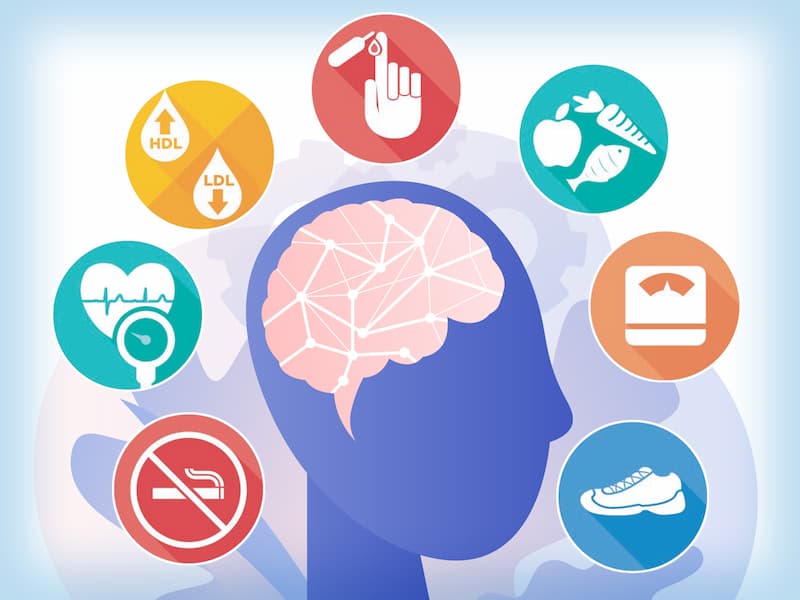When you breathe in, your heart beat faster to increase oxygen delivery to your body tissues and organs. This is known as the respiratory sinus arrhythmia, a normal response to inhalation that supports oxygen uptake.
The increased neural activity during inhalation stimulates the parasympathetic nervous system, leading to a decrease in heart rate. This, in turn, causes the baroreceptors in your arteries to signal the heart to beat faster and maintain cardiac output. As a result, your heart rate synchronizes with your breathing patterns, allowing for efficient oxygen uptake and delivery throughout the body.
This natural physiological response ensures that your tissues receive the necessary oxygen during moments of increased respiratory demand.

Credit: neurosciencenews.com
How Does The Heart Beat?
The heart is a vital organ in the human body responsible for pumping blood and delivering oxygen to all parts of the body. The heart beats continuously, allowing blood to circulate. So, why does your heart beat faster when you breathe in?
The Anatomy of the Heart:
The heart is a muscular organ located in the chest cavity between the lungs. It consists of four chambers: the two upper chambers called atria and the two lower chambers called ventricles. Blood enters the heart through the atria and is pumped out to the body by the ventricles.
The Role of Electrical Signals:
Electrical signals originate in the sinoatrial (SA) node, often called the pacemaker of the heart. These signals travel through the heart, causing it to contract and relax rhythmically. When you breathe in, the increased oxygen demand triggers the SA node to produce and send more electrical signals, leading to an increased heart rate.
The Function of Heart Valves:
Heart valves play a crucial role in ensuring proper blood flow. They open and close with each heartbeat, allowing blood to flow in one direction only. When you breathe in, the increased blood volume returning to the heart causes the valves to open and close more frequently, contributing to the faster heart rate.
The Connection Between Breathing And Heart Rate
Have you ever wondered why your heart beats faster when you breathe in? The connection between breathing and heart rate is a fascinating aspect of human physiology. The autonomic nervous system plays a crucial role in regulating this connection.
Additionally, oxygen levels in the blood can influence the heart rate during breathing. Moreover, carbon dioxide levels also impact the heart rate. Understanding the impact of breathing techniques on heart rate can enlighten us about the ways to manage stress and anxiety.
Factors That Increase Heart Rate During Inhalation
When you breathe in, stimulation of the sympathetic nervous system causes your heart to beat faster. This automatic response prepares your body for action. Additionally, inhalation leads to increased oxygen demand in the body, triggering your heart to work harder to meet this demand.
Moreover, emotional states such as stress or excitement can also impact your heart rate during inhalation. These factors can collectively contribute to the sensation of your heart beating faster when you take a breath. It’s crucial to understand these influences on heart rate and their potential effects on overall health and well-being.

Credit: www.amazon.com
Common Conditions That Affect Heart Rate
Breathing is an essential bodily function, but have you ever wondered why your heart beat faster when you breathe in? Several common conditions can affect your heart rate, causing it to increase with each breath.
| Condition | Description |
|---|---|
| Anxiety and Panic Attacks | Anxiety and panic attacks can trigger a surge of adrenaline in your body, leading to an increase in heart rate when you take a deep breath. |
| Asthma and Breathing Difficulties | If you have asthma or experience difficulty in breathing, your body may compensate by increasing your heart rate to ensure sufficient oxygen supply. |
| Hormonal Imbalances | Hormonal imbalances, such as during menopause or thyroid disorders, can disrupt the normal functioning of the heart and cause fluctuations in heart rate. |
These are just a few examples of conditions that can impact your heart rate when you breathe in. It is important to consult with a healthcare professional if you notice significant or persistent changes in your heart rate, as it may be indicative of an underlying health issue.
Ways To Maintain A Healthy Heart Rate
Engaging in regular exercise is one of the most effective ways to maintain a healthy heart rate. Physical activity strengthens your heart, making it more efficient at pumping blood throughout your body. Aim for at least 30 minutes of moderate-intensity exercise most days of the week. Activities such as brisk walking, swimming, cycling, or dancing are great options.
Stress can significantly impact your heart rate. Implementing stress management techniques like deep breathing exercises, meditation, or practicing yoga can help reduce stress levels and keep your heart rate in check.
A healthy diet rich in fruits, vegetables, whole grains, lean proteins, and low in saturated fats is crucial for maintaining a healthy heart rate. Additionally, staying hydrated is essential to support proper blood circulation.
Quality sleep plays a vital role in maintaining a healthy heart rate. Aim for 7-9 hours of uninterrupted sleep per night. Develop a bedtime routine and create a sleep-friendly environment by keeping the room cool, dark, and quiet.

Credit: www.goodreads.com
Conclusions
The connection between the increased heart rate and breathing can be attributed to several factors. The body’s natural response to increased oxygen intake, the activation of the sympathetic nervous system, and the influence of stress or anxiety can all contribute to a faster heartbeat.
Understanding these mechanisms can help us better manage our physical and mental well-being. So the next time you notice your heart racing while taking a deep breath, remember that it’s just the body’s way of working in harmony. Stay mindful and embrace the power of breath!






